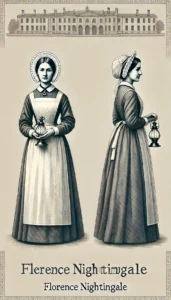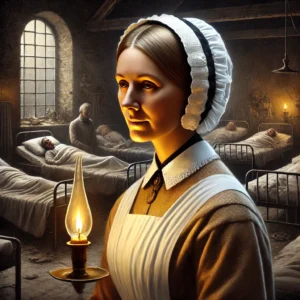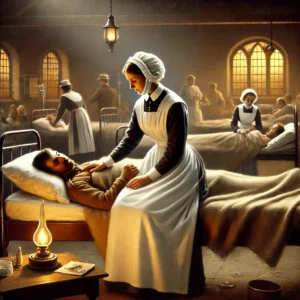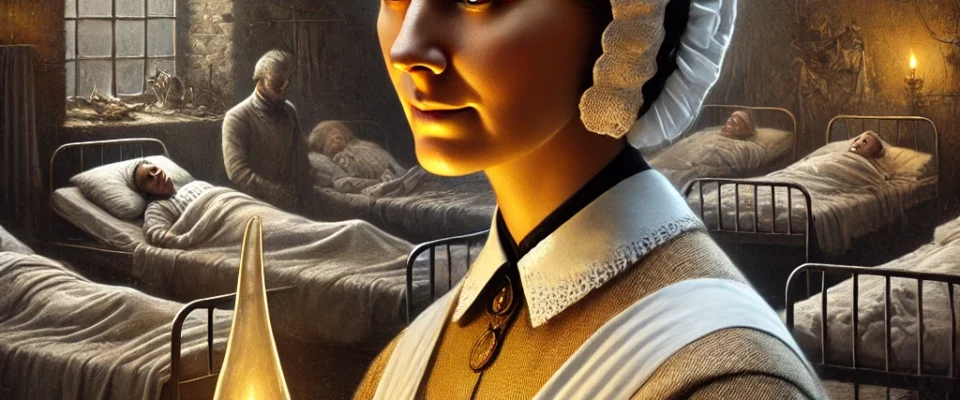Florence Nightingale (1820–1910) is one of the most prominent figures in medical history, regarded as the founder of modern nursing. She is known as “The Lady with the Lamp” because she often carried a lamp to check on the condition of wounded soldiers at night during the Crimean War (1853–1856).

Life and Career:
– Born: May 12, 1820, in Florence, Italy.
– Died: August 13, 1910, in London, England.
Notable Contributions:
1. Improving medical conditions: During the Crimean War, she organized and improved medical conditions at field hospitals, reducing the mortality rate from about 42% to 2%.
2. Establishing a nursing school: In 1860, Florence Nightingale established the Nightingale Training School at St Thomas’ Hospital in London. This was the first nursing school in the world, training professional nurses.
3. Developing nursing theory: Florence Nightingale introduced fundamental principles in patient care, particularly in hygiene, nutrition, and a clean environment. She wrote the book “Notes on Nursing: What It Is and What It Is Not,” which became a foundational text in the field of nursing.
4. Statistical work: She was also one of the first to apply statistics in medicine, using charts to present data on disease and mortality, raising awareness about health issues.


Florence Nightingale not only helped transform the face of medicine but was also a pioneer in improving the living and working conditions of patients and medical staff. Her legacy continues to have a profound impact on the fields of healthcare and nursing to this day.

